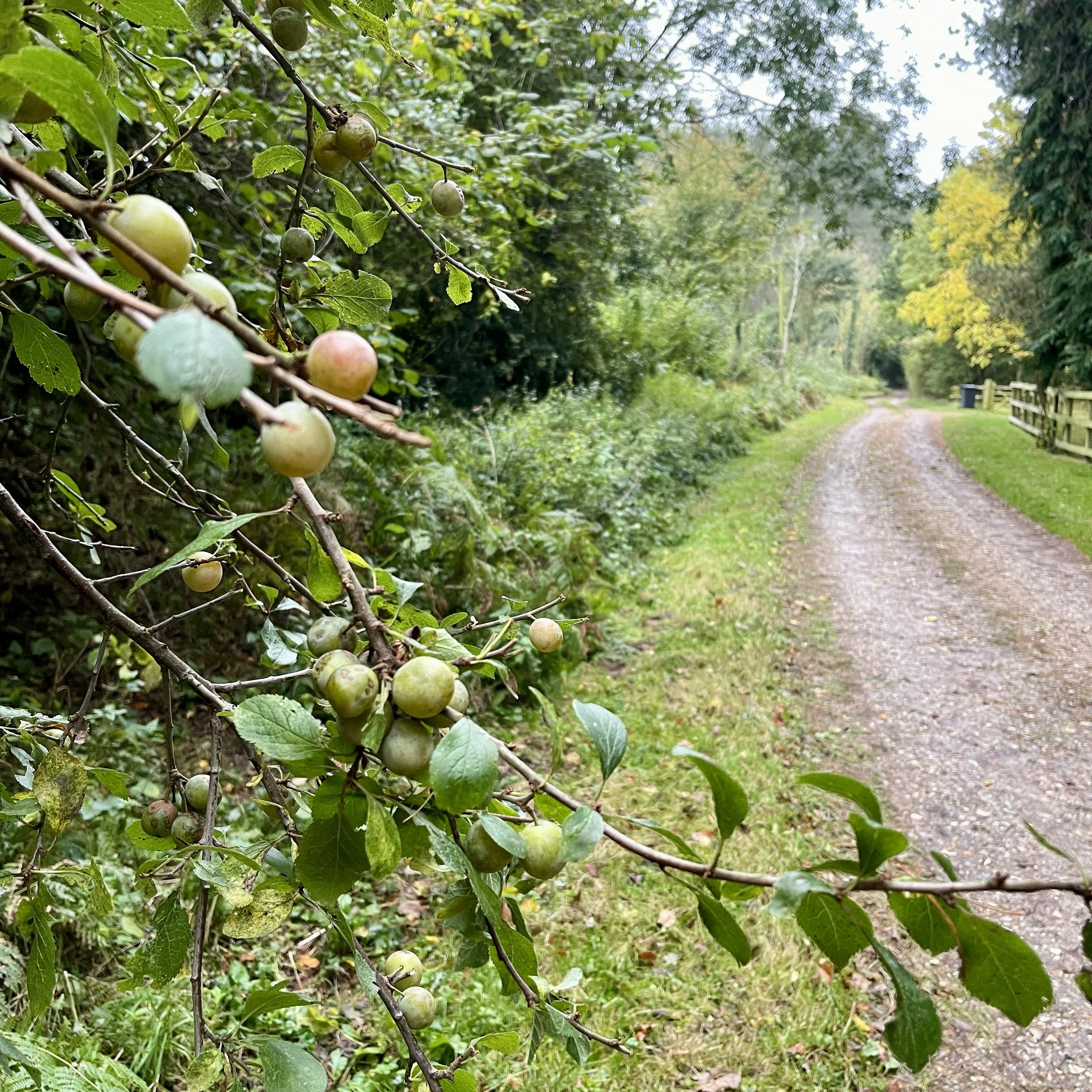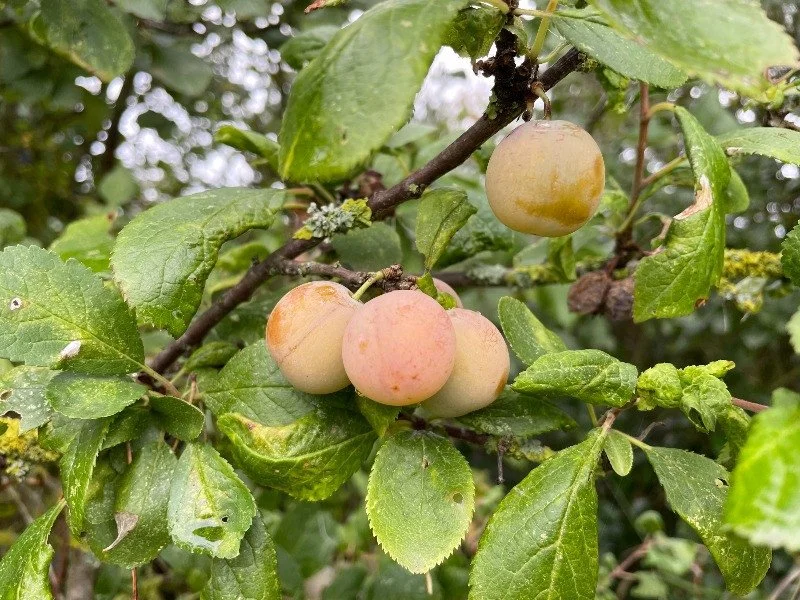 Image 1 of 2
Image 1 of 2

 Image 2 of 2
Image 2 of 2



Bullace ‘Gold Hart’
(Prunus domestica subsp. insititia)
plug plant
Bullace ‘Gold Hart’ (Prunus domestica subsp. insititia)
You are buying 1 organically grown Bullace ‘Gold Hart’ (Prunus domestica subsp. insititia) root trainer plug plant.
Please note:
Root trainer plug plants are available year-round. We always aim to process orders within two days, however there may be unavoidable delays in despatch during extreme weather, so please be patient.
Organically and sustainably grown in our forest garden here at Poet’s Acre, located in the heart of 1000 acres of organic farmland and ancient woodland in rural North Norfolk. Plants are grown as part of a sustainable management plan that encourages diversity and resilience. The land here is completely organic, we do not use pesticides or sprays of any kind.
Plant Care
Your Bullace plug plant will arrive carefully packaged to prevent damage or drying out. Root trainer plugs encourage strong, deep root growth, giving your plant the best possible start.
On arrival, water the plant if the compost feels dry. You may pot it on into a larger pot for its first year to encourage extra root growth before planting in its final position. If planting directly out, choose a sunny, sheltered spot with fertile, well-drained soil. Dig a hole just larger than the plug, enrich with compost, firm gently, and water well. Space 3–4m apart for orchard planting.
Bullace trees benefit from annual pruning in winter to remove dead or crossing branches. Mulch annually to retain soil moisture and suppress weeds.
Postage & Packaging
Price includes postage, and we send all our plants by Royal Mail 48 with tracking. We aim to post items within 2 working days of your order, weather permitting. We use as much recycled material for packaging as possible.
About Bullace ‘Gold Hart’
Bullace ‘Gold Hart’ is a traditional variety of plum (Prunus domestica subsp. insititia) producing small golden-red fruits in late summer to early autumn. Hardy and reliable, it is well-suited to traditional orchards and home gardens. The fruit is sharp when raw but excellent for cooking, preserving, and winemaking.
Culinary Uses
The fruits are perfect for jams, jellies, chutneys, pies, and country wines. They can also be bottled or used in sauces.
Garden Uses
A compact fruit tree suitable for orchards, forest gardens, or as a specimen in larger gardens. It can also be trained against a wall or grown as part of a mixed hedgerow.
Wildlife Uses
The spring blossom provides nectar for bees and pollinators, while the fruits are enjoyed by birds and mammals in autumn. The dense growth also provides shelter for wildlife.
About Poet’s Acre
Poet’s Acre is a forest garden project, creating a continuously expanding repository of regionally adapted plants and a haven for wildlife and threatened species of all kinds. Our work is supported by a small family-run nursery growing plants for gardens, forest gardens, food forests, and permaculture projects. Our aim is to grow healthy, chemical-free plants for diversity, resilience, and climate adaptability, encouraging people to connect with the land, themselves, and each other.
Bullace ‘Gold Hart’ (Prunus domestica subsp. insititia)
You are buying 1 organically grown Bullace ‘Gold Hart’ (Prunus domestica subsp. insititia) root trainer plug plant.
Please note:
Root trainer plug plants are available year-round. We always aim to process orders within two days, however there may be unavoidable delays in despatch during extreme weather, so please be patient.
Organically and sustainably grown in our forest garden here at Poet’s Acre, located in the heart of 1000 acres of organic farmland and ancient woodland in rural North Norfolk. Plants are grown as part of a sustainable management plan that encourages diversity and resilience. The land here is completely organic, we do not use pesticides or sprays of any kind.
Plant Care
Your Bullace plug plant will arrive carefully packaged to prevent damage or drying out. Root trainer plugs encourage strong, deep root growth, giving your plant the best possible start.
On arrival, water the plant if the compost feels dry. You may pot it on into a larger pot for its first year to encourage extra root growth before planting in its final position. If planting directly out, choose a sunny, sheltered spot with fertile, well-drained soil. Dig a hole just larger than the plug, enrich with compost, firm gently, and water well. Space 3–4m apart for orchard planting.
Bullace trees benefit from annual pruning in winter to remove dead or crossing branches. Mulch annually to retain soil moisture and suppress weeds.
Postage & Packaging
Price includes postage, and we send all our plants by Royal Mail 48 with tracking. We aim to post items within 2 working days of your order, weather permitting. We use as much recycled material for packaging as possible.
About Bullace ‘Gold Hart’
Bullace ‘Gold Hart’ is a traditional variety of plum (Prunus domestica subsp. insititia) producing small golden-red fruits in late summer to early autumn. Hardy and reliable, it is well-suited to traditional orchards and home gardens. The fruit is sharp when raw but excellent for cooking, preserving, and winemaking.
Culinary Uses
The fruits are perfect for jams, jellies, chutneys, pies, and country wines. They can also be bottled or used in sauces.
Garden Uses
A compact fruit tree suitable for orchards, forest gardens, or as a specimen in larger gardens. It can also be trained against a wall or grown as part of a mixed hedgerow.
Wildlife Uses
The spring blossom provides nectar for bees and pollinators, while the fruits are enjoyed by birds and mammals in autumn. The dense growth also provides shelter for wildlife.
About Poet’s Acre
Poet’s Acre is a forest garden project, creating a continuously expanding repository of regionally adapted plants and a haven for wildlife and threatened species of all kinds. Our work is supported by a small family-run nursery growing plants for gardens, forest gardens, food forests, and permaculture projects. Our aim is to grow healthy, chemical-free plants for diversity, resilience, and climate adaptability, encouraging people to connect with the land, themselves, and each other.
